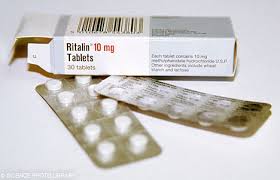Four Things that Substance Abuse Therapy Teaches You
If you or a loved one are starting on a path of recovery from substance abuse, you may be wondering what substance abuse therapy can do for you. If you’re going to be spending money and time on a treatment option, then you probably want to know what you will learn from it. What are four things you will learn to do in substance abuse therapy?
1. Identify the Problem
According to NIDA, individuals in cognitive behavioral therapy learn how to identify the behaviors that have been destructive to them. They also learn better coping mechanisms to deal with the triggers that previously caused them to use. For many individuals, this can be a significant step, as they may not have previously realized the problems that their addiction or behaviors were causing. Once the issue is addressed and acknowledged, rather than denied or hidden away, the process of recovery becomes a more achievable task.
2. Develop Coping Methods

Substance abuse therapy teaches you how to cope with stress as well as drug cravings.
Substance abuse is often a form of coping with difficult times or stressful situations. You can learn, however, to recognize the cravings you may have for alcohol or drugs and find other coping methods instead. As well as coping with the stress, you will also learn to cope with the cravings that accompany it, and how to move on from those when the situation arises.
3. Improve Interpersonal Relationships
Family therapy or group therapy are great options to help you find a network of support from individuals who understand what you are going through and can walk through this journey with you. The benefit of this, according to NIDA, is that going to meetings and outpatient therapy can help you stay sober once you leave inpatient treatment programs. If you choose to walk through this as a family, it can greatly improve your connection and help you grow together through this transition. Substance abuse can be a difficult time for a family, but the pathway to recovery can bring you back together and restore the unity in your relationships.
4. Find the Right Medications or Alternatives
Self-diagnosed issues and treatments may not always provide the best results, but the experts who will walk you through substance abuse therapy can suggest the right medication or alternative methods to treat any health issues, physical or mental, that may be associated with your substance abuse. It is important to address not only the addiction at hand, but also the secondary health issues that may arise from it. Therapy specialists can diagnose and treat these issues for your overall better health.
Recovery from substance abuse can be a long and daunting journey, but the results are worth every step. If you or a loved one is suffering from substance abuse and seeking guidance, call 800-605-6597 Who Answers? to speak with a caring specialist who can answer your questions and walk you through the process of recovery. Therapy can teach you many valuable things that will help prevent future relapse and bring you or your loved one back to a healthy state.
Stimulant Addiction’s Hold on the Mind and the Benefits of Talk Therapies in Treatment



